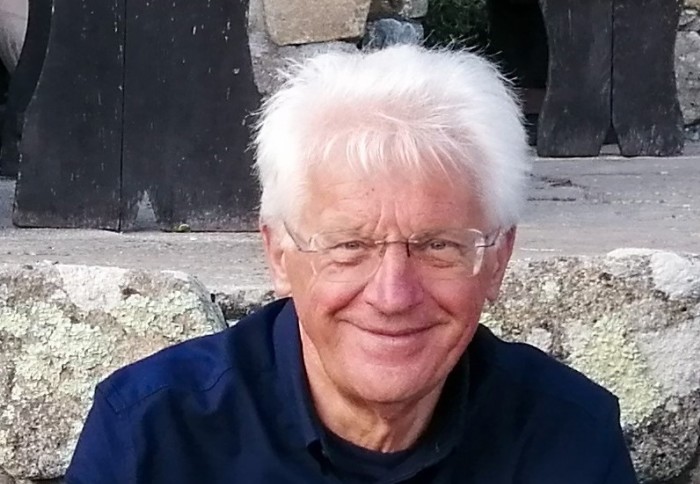Obituary: Professor Martin Williams
by Jack Stewart

Professor Frank Kelly pays tribute to the late Professor Martin Williams of the Environmental Research Group.
Professor Martin Williams: Mr Air Quality
Professor Martin Williams was one of the foremost authorities on air pollution science and its incorporation into policy - not only in the UK, but also more widely in Europe. In his early career Martin headed the air pollution division of one of the UK’s leading air pollution research institutes, Warren Spring Laboratory. Martin led a team making the first ‘real-world’ measurements of emissions from cars and trucks, predating ‘dieselgate’ by some 20 years and at the time, this was the only group in the world making such measurements. Martin was the first to identify ground-level intrusions of ozone-rich stratospheric air that exceeded health related guidelines due to natural causes, and published one of the first papers on air pollution and health in the ‘modern’ era after the smogs of the ‘50s and ‘60s. Martin’s expertise was recognised through his selection as a member of the first expert advisory group set up by the Departments of Health and Environment, on urban air pollution, photochemical pollution, the effects of air pollution on health and the panel developing air quality standards for the UK.
In 1993 Martin moved to head the air quality science unit in the Department of the Environment where he formulated the research programmes and led the production of three national air quality strategies between 1993 and 2002. These were heavily science-based, and won commendations as exemplars of scientific inputs to policy. During this time, Martin maintained a link with the purely scientific aspects of air quality, publishing several peer-reviewed papers whilst working in Government.
At this time Martin was invited to become a member of the World Health Organisation (WHO) working group that formulated air quality guidelines to protect public health, to advise the US Environmental Protection Agency on their air quality monitoring strategy and to be a member of the US Health Effects Institute Committee on New Technologies. Martin co-chaired a working group on particulate pollution on behalf of the European Commission providing the scientific basis for legislation on air quality limits in forthcoming Directives. He was also elected chairman of the scientific arm of the UN Convention on Long Range Transboundary Air Pollution (CLRTAP) - the air pollution analogue of the climate change Convention - formulating and overseeing research in centres in Norway, Moscow, Vienna and Germany to underpin the negotiations of policy agreements on emission reductions by countries covering most of the northern hemisphere.
In 2005 Martin was promoted to head the air pollution programme in Department for Environment, Food and Rural Affairs (Defra), taking responsibility for policy as well as science and evidence. This involved translating science into the formulation of policy, advising Ministers and leading the negotiations for the UK on air pollution Directives in the EU. Martin was also elected to chair the top-level body of the CLRTAP convention, steering the negotiations of a major international agreement on air pollution reductions that involved parties from the EU, USA, Canada, Russia and the Eastern Caucasus. During this period links with the Environmental Research Group (ERG) at King’s College London were strengthened following his appointment to a Visiting Professorship.
In 2010 Martin left Defra to join the ERG and return to academic research in air pollution. At this time, he was an elected member of Defra’s Air Quality Expert Group, he continued to chair the CLRTAP Executive Body and was a member of a WHO working group reviewing the literature on the health effects of air pollution. Over the last 10 years Martin published papers with colleagues at King’s on real-world emissions from vehicles that formed part of the evidence cited in the VW case. As Principal Investigator Martin won a large NIHR grant to model the air quality impacts on health and social deprivation of different pathways to meet the UK Climate Change Act target in 2050. This recently completed work will produce four papers, one of which has already been published in the Lancet. With the recent move of the ERG, to Imperial College, Martin contributed to the Group’s foremost position in both UK and international air quality policy through chairing Defra’s Air Quality Modelling Steering Group, set up to advise the Department on their strategic needs for air pollution modelling. He was also invited to co-chair the group developing new air quality guidelines by the WHO, the outputs of which will be used by the European Commission in revising the existing air quality legislation in the EU. Outside the immediate air pollution arena, the Department for Business, Energy and Industrial Strategy (BEIS) invited Martin to chair their Programme Expert Group on Energy and the Environment, providing a scrutiny of the work carried out in this sector by the National Physical Laboratory as part of the UK National Measurement System funded by BEIS.
In June 2019 UK Research and Innovation and the Met Office launched an ambitious new programme to improve air quality and reduce its impact on health in the UK with the announcement of three Clean Air Champions. Their remit over the three years was to bring together the UK’s world-class air quality research base to develop practical solutions for air quality issues, as part of the Clean Air programme. It could not have been more fitting that Martin was one of those Champions.
Article text (excluding photos or graphics) © Imperial College London.
Photos and graphics subject to third party copyright used with permission or © Imperial College London.
Reporter
Jack Stewart
School of Public Health